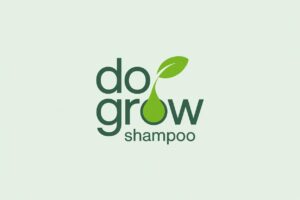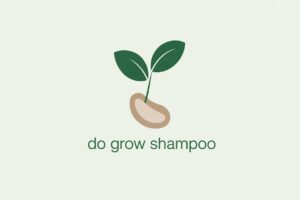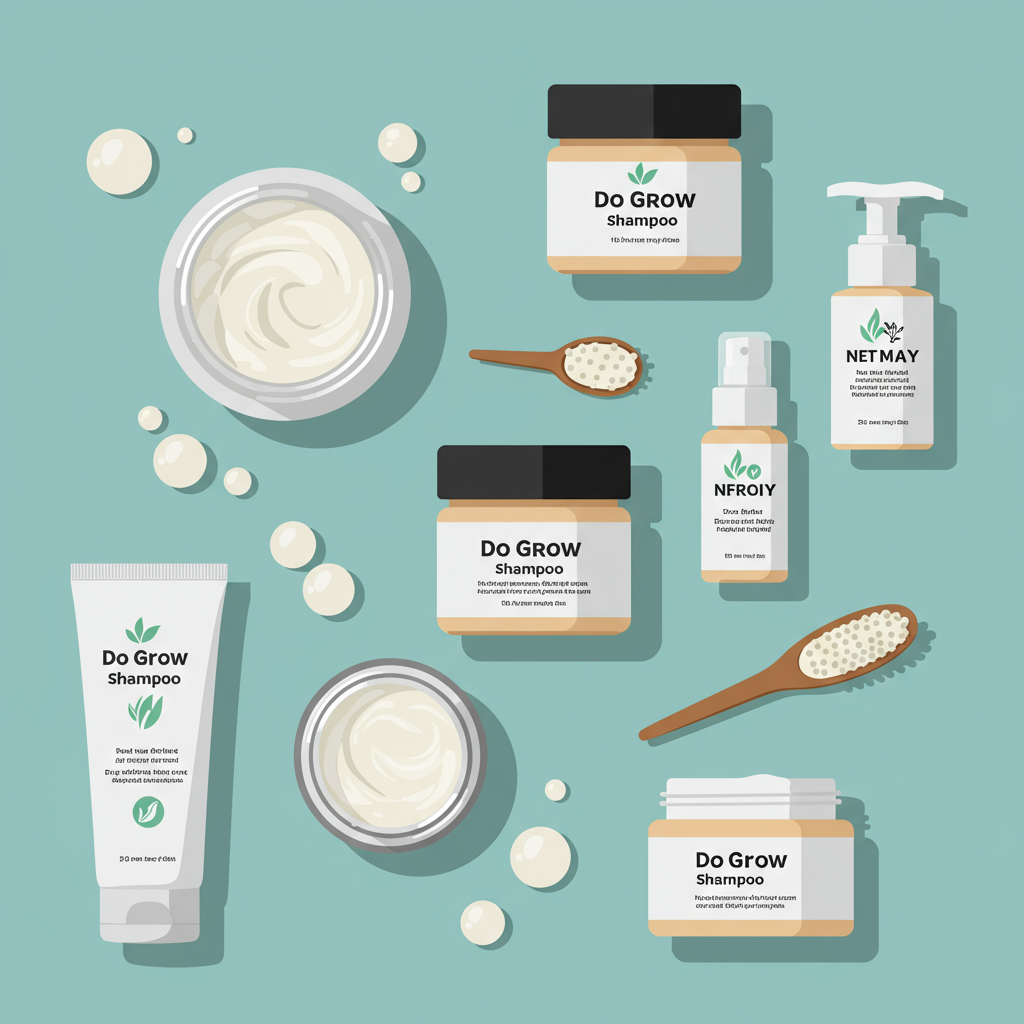
Understanding Hair Growth: The Basics
Before we explore whether a “do grow shampoo” can help, it’s essential to understand how hair actually grows. Hair growth is a complex biological process, occurring in cycles within the hair follicles beneath your scalp.
The Hair Growth Cycle Explained
Each hair strand goes through three primary phases:
- Anagen (Growth Phase): This is the active growth stage, lasting anywhere from two to seven years. During this time, hair cells rapidly divide, pushing the hair shaft out from the follicle. The length of your anagen phase largely determines how long your hair can grow.
- Catagen (Transition Phase): A short transitional phase lasting about two to three weeks. During this time, hair growth stops, and the outer root sheath shrinks and detaches from the dermal papilla.
- Telogen (Resting Phase): This phase lasts for about two to four months. The hair is completely at rest, and a new hair begins to grow beneath it. At the end of the telogen phase, the old hair sheds, making way for the new hair to emerge from the follicle.
At any given time, approximately 85-90% of your hair is in the anagen phase, 1-2% in catagen, and 10-14% in telogen. Disruptions to this cycle, whether due to genetics, hormones, stress, nutrition, or external damage, can lead to thinning or hair loss.
Do Grow Shampoo Products Really Deliver? Setting Realistic Expectations
The million-dollar question: do grow shampoo products genuinely work to promote significant hair growth? The answer is nuanced. It’s crucial to manage expectations. A shampoo, by its very nature, is a topical product designed primarily for cleansing the hair and scalp. It has limited contact time with the scalp and cannot fundamentally alter genetic predispositions or reverse advanced stages of hair loss like androgenetic alopecia on its own.
What Hair Growth Shampoos CAN Do:
- Create an Optimal Scalp Environment: Many “do grow shampoo” formulations focus on promoting a healthy scalp. A clean, nourished scalp free from excessive oil, product buildup, and inflammation is essential for healthy hair growth.
- Reduce Breakage: Some shampoos contain ingredients that strengthen hair strands, making them less prone to breakage. While this doesn’t stimulate new growth, it helps retain existing length, giving the appearance of longer, healthier hair.
- Stimulate Follicles (Mildly): Certain ingredients can improve blood circulation to the scalp or deliver nutrients that might mildly stimulate dormant or sluggish hair follicles. This can potentially encourage existing follicles to produce stronger, healthier hair or extend the anagen phase slightly.
- Address Underlying Issues: Shampoos with anti-fungal or anti-inflammatory ingredients (like ketoconazole) can treat scalp conditions (e.g., dandruff, seborrheic dermatitis) that might be impeding healthy hair growth.
What Hair Growth Shampoos CANNOT Do:
- Grow Hair Where Follicles Are Dead: If your hair follicles are completely dormant or scarred, no shampoo can magically bring them back to life.
- Cure Advanced Baldness: For significant genetic hair loss, shampoos are typically not a standalone solution. They might be part of a multi-faceted treatment plan but won’t offer a cure.
- Provide Instant Results: Hair growth is a slow process. Any perceived results from a “do grow shampoo” will take time – typically several months of consistent use – to become noticeable.
In essence, think of “do grow shampoo” products as supportive players rather than miracle workers. They can optimize conditions for your hair to grow its best, but they won’t rewrite your biological programming.
Key Ingredients to Look For in a Hair Growth Shampoo
When you’re scrutinizing the label of a “do grow shampoo,” certain ingredients stand out for their potential to support hair health and growth. Here are some of the most common and scientifically discussed components:
Scientifically-Backed & Promising Ingredients
- Minoxidil: While primarily found in topical treatments (like Rogaine), some specialized shampoos might contain a low percentage. Minoxidil is an FDA-approved ingredient known to prolong the anagen phase and enlarge shrunken hair follicles.
- Biotin (Vitamin B7): Often touted as a hair growth vitamin, biotin helps in the production of keratin, the primary protein composing hair. While biotin deficiency can lead to hair loss, supplementing or applying it topically may only help if you are deficient.
- Caffeine: Studies suggest that caffeine can stimulate hair follicles, promoting faster hair growth and potentially inhibiting the effects of DHT (a hormone linked to hair loss).
- Ketoconazole: An anti-fungal agent, often found in dandruff shampoos. It’s also believed to have anti-androgenic properties, which can be beneficial for certain types of hair loss, particularly those related to inflammation or fungal overgrowth on the scalp.
- Niacin (Vitamin B3): Helps improve blood circulation to the scalp, ensuring follicles receive adequate nutrients and oxygen for healthy growth.
- Saw Palmetto: A natural ingredient believed to block DHT, similar to some prescription medications. It’s often included in natural “do grow shampoo” formulations.
- Peptides: Small chains of amino acids that can signal cells to produce more collagen or other beneficial proteins, potentially strengthening hair and stimulating follicles.
- Essential Oils (Rosemary, Peppermint, Tea Tree): Rosemary oil, in particular, has shown promise in some studies for stimulating hair growth, potentially comparable to minoxidil. Peppermint oil can increase circulation, and tea tree oil can keep the scalp clean and healthy.
- Zinc Pyrithione: Another common anti-dandruff ingredient that creates a healthier scalp environment, indirectly supporting hair growth.
Ingredients to Approach with Caution
While not directly harmful, some ingredients can irritate the scalp or strip natural oils, potentially counteracting the benefits of a “do grow shampoo”:
- Sulfates: Can be harsh and strip natural oils, leading to dryness and irritation for some individuals. Look for sulfate-free options if you have a sensitive scalp.
- Heavy Silicones: Can build up on the scalp and hair, potentially clogging follicles and weighing hair down.
- Strong Fragrances/Dyes: May cause allergic reactions or irritation in sensitive individuals.
How “Hair Growth Shampoos” Work (or Don’t Work)
The mechanism of action for a “do grow shampoo” is multifaceted and depends heavily on its active ingredients. It’s less about directly “making” hair grow and more about creating an environment where existing hair can thrive and grow optimally.
Targeting Scalp Health and Follicle Stimulation
The primary way these shampoos aim to work is by improving scalp health. A dirty, oily, or inflamed scalp can impede hair growth. By cleansing thoroughly and incorporating beneficial ingredients, a “do grow shampoo” can:
- Boost Circulation: Ingredients like caffeine and peppermint oil can increase blood flow to the scalp, ensuring hair follicles receive a steady supply of oxygen and nutrients.
- Reduce Inflammation: Anti-inflammatory ingredients help calm an irritated scalp, which can be a barrier to healthy hair growth.
- Clear Follicle Blockages: By removing sebum, dead skin cells, and product buildup, these shampoos ensure follicles are clear and can function optimally.
- Strengthen Hair Strands: Proteins, vitamins, and minerals in the shampoo can fortify the hair shaft, reducing breakage and allowing hair to grow longer without snapping off.
- Inhibit DHT: For those with androgenetic alopecia (pattern baldness), some ingredients (like ketoconazole and saw palmetto) work to block DHT, a hormone that shrinks hair follicles.
The “Don’t Work” Aspect: Limitations
It’s important to reiterate that shampoos have limitations. Their contact time with the scalp is brief, typically only a few minutes before rinsing. This limits the absorption and efficacy of many active ingredients compared to leave-on treatments or oral supplements. Therefore, a “do grow shampoo” is best viewed as a supportive measure within a broader hair care routine, not a standalone cure for significant hair loss.
Beyond the Bottle: Holistic Approaches to Hair Growth
While a good “do grow shampoo” can be a valuable part of your routine, true hair growth and health stem from a holistic approach. Focusing solely on a shampoo will likely yield limited results if other factors are neglected.
Comprehensive Strategies for Healthier, Longer Hair:
- Balanced Nutrition: Your hair is a reflection of your internal health. Ensure your diet is rich in proteins (for keratin production), iron, zinc, biotin, and vitamins A, C, D, and E. Foods like leafy greens, berries, nuts, seeds, fatty fish, and lean meats are excellent for hair health.
- Stress Management: Chronic stress can push hair follicles prematurely into the telogen (resting) phase, leading to increased shedding (telogen effluvium). Practices like meditation, yoga, regular exercise, and adequate sleep can significantly reduce stress.
- Gentle Hair Care Practices: Avoid excessive heat styling, tight hairstyles that pull on the roots, and harsh chemical treatments. Use a wide-tooth comb on wet hair and be gentle when washing and drying.
- Scalp Massage: Regular scalp massages can stimulate blood flow to the follicles, which may encourage growth. You can do this with your fingertips or a specialized scalp massager.
- Adequate Hydration: Drinking enough water is crucial for overall health, including the health of your hair and skin.
- Supplements (Under Guidance): If your diet is lacking, certain supplements like biotin, collagen, or marine protein complexes might be beneficial. Always consult with a doctor or dermatologist before starting any new supplement regimen.
- Medical Consultation: For significant hair loss, thinning, or scalp issues, consult a dermatologist or trichologist. They can diagnose underlying conditions and recommend medical treatments, which might include prescription medications or other therapies.
Integrating these practices with a well-chosen “do grow shampoo” will provide the most effective path toward achieving your hair growth goals.
Choosing the Right Do Grow Shampoo for You
With a clearer understanding of what to expect, how do you pick the best “do grow shampoo” for your needs? It’s not a one-size-fits-all solution.
Factors to Consider:
- Your Hair Concern: Are you dealing with thinning, slow growth, breakage, or a specific scalp condition like dandruff? Your primary concern will dictate which active ingredients are most relevant.
- Hair Type: Oily, dry, fine, thick, color-treated – your hair type impacts how a shampoo will perform. Look for formulations that complement your hair’s natural characteristics.
- Ingredient List: Prioritize shampoos with the science-backed ingredients discussed earlier (caffeine, biotin, ketoconazole, niacin, saw palmetto, etc.).
- Avoid Irritants: If you have a sensitive scalp, opt for sulfate-free, paraben-free, and fragrance-free options.
- Reviews and Reputation: While not definitive, consistent positive reviews can offer insight into a product’s general effectiveness and user satisfaction.
- Consistency is Key: Whatever “do grow shampoo” you choose, consistent use over several months is crucial to see any potential results. Don’t switch products too frequently.
- Patch Test: Before fully committing, always perform a patch test on a small area of your scalp to check for any adverse reactions.
Remember, sometimes the best “do grow shampoo” is one that simply keeps your scalp incredibly healthy, allowing your hair to grow undisturbed and strong.
Recommended Products
Pura D’or Original Gold Label Anti-Thinning Biotin Shampoo
A popular choice for those targeting thinning hair, featuring a blend of biotin, DHT blockers, and other natural ingredients to support scalp health and reduce breakage.
Nioxin System Kit for Thicker, Fuller Hair
Nioxin offers various systems tailored to different levels of thinning, focusing on scalp health and thickening existing hair. A comprehensive approach often includes shampoo, conditioner, and a scalp treatment.
Ultrax Labs Hair Surge Caffeine Hair Loss Hair Growth Stimulating Shampoo
This shampoo is formulated with caffeine, a key ingredient believed to stimulate hair follicles and promote growth, along with other essential oils and vitamins.
Maple Holistics Biotin Shampoo for Hair Growth
A natural, sulfate-free option that combines biotin with other beneficial botanical extracts to nourish the scalp and hair, aiming to reduce shedding and promote thicker hair.
Frequently Asked Questions About Do Grow Shampoo
Q1: How long does it take to see results from a hair growth shampoo?
A1: Hair growth is a slow process, so patience is key. Most experts suggest using a “do grow shampoo” consistently for at least 3-6 months before expecting to see any noticeable changes. This timeframe allows for a full hair growth cycle to occur and for the active ingredients to have a cumulative effect on your scalp and hair follicles.
Q2: Can “grow shampoos” cure baldness?
A2: No, “grow shampoos” generally cannot cure baldness, especially if it’s due to genetic factors or significant follicle damage. They can help create an optimal environment for existing hair to grow healthier and may slightly stimulate dormant follicles, but they are not a cure for advanced hair loss or a solution for growing hair where follicles are completely inactive.
Q3: Are there any side effects to using hair growth shampoos?
A3: While most “do grow shampoo” products are well-tolerated, some individuals may experience side effects. These can include scalp irritation, redness, itching, dryness, or allergic reactions to specific ingredients. If a shampoo contains minoxidil, some people might experience initial shedding (known as “minoxidil shedding”) before new growth begins. Always perform a patch test first and discontinue use if irritation persists.
Q4: Should I use a hair growth conditioner with my “do grow shampoo”?
A4: Yes, pairing a hair growth shampoo with a complementary hair growth conditioner is often recommended. Conditioners typically provide additional nourishment, detangling benefits, and ingredients that strengthen hair strands, reducing breakage. This synergistic approach can enhance the overall effectiveness of your hair growth regimen by addressing both scalp health and hair strand integrity.
Q5: What’s the difference between hair growth shampoo and regular shampoo?
A5: The primary difference lies in their purpose and active ingredients. Regular shampoos focus mainly on cleansing the hair and scalp of dirt, oil, and product buildup. “Do grow shampoo” products, while also cleansing, are formulated with specific active ingredients (e.g., caffeine, biotin, ketoconazole, DHT blockers) that are intended to stimulate hair follicles, improve scalp health, reduce hair loss, or strengthen hair to prevent breakage, thereby promoting an environment conducive to growth.
Conclusion: Realistic Expectations for Your Do Grow Shampoo Journey
The journey to healthier, longer hair is often filled with hope and, at times, frustration. When it comes to the question, do grow shampoo products truly work? the answer is a resounding “yes,” but with significant caveats. They are not magic potions that will instantly transform a receding hairline into a full mane, nor can they revive dead follicles. Instead, their power lies in their ability to foster a prime environment for your existing hair to grow its strongest and healthiest.

By understanding the science of hair growth, seeking out shampoos fortified with proven ingredients like caffeine, biotin, and ketoconazole, and maintaining realistic expectations, you can make an informed choice. Remember that a “do grow shampoo” is best utilized as a supportive tool within a broader, holistic approach to hair care. Combine it with a nutritious diet, stress management, gentle styling, and if necessary, professional medical advice. Consistency is your greatest ally. With the right strategy and a little patience, you can empower your hair to reach its full potential, one healthy strand at a time.
